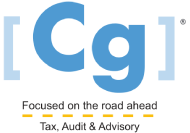
In recent years, more and more businesses have increased efforts to support the well-being of their employees. This means not only providing health care benefits, but also offering other initiatives designed to help workers cope with challenges such as substance dependence, financial planning, legal woes, and mental health issues.
Among the options usually considered is an employee assistance program (EAP). These programs typically offer a set of benefits intended to address circumstances and challenges that might adversely affect employees’ ability to work. Benefits may include short-term mental health or substance abuse counseling or referral services, as well as financial counseling and legal services.
When considering an EAP, many business owners eventually ask a common question: Will the program be subject to the Employee Retirement Income Security Act (ERISA)?
Medical care
The answer depends on how the EAP is structured and what benefits it provides. Generally, an arrangement is an ERISA welfare benefit plan if it’s a plan, fund or program established or maintained by an employer to provide ERISA-listed benefits, which include medical services.
Indeed, the category of ERISA-listed benefits most likely to be provided by an EAP is medical care or benefits. Mental health counseling — whether for substance abuse, stress, or other issues — is considered medical care. Accordingly, an EAP providing mental health counseling will probably be subject to ERISA. On the other hand, an EAP that provides only referrals and general information, and isn’t staffed by trained counselors, likely isn’t an ERISA plan.
Even if an EAP primarily uses referrals, it could still be considered to provide medical benefits if the individuals handling initial phone consultations and making the referrals are trained in an applicable field, such as psychology or social work. If the EAP provides any benefit subject to ERISA, then the entire EAP must comply with the law — even if it also provides non-ERISA benefits.
Beyond ERISA
When considering an EAP, you should first determine whether it will be subject to ERISA. The law’s provisions address critical compliance matters such as:
- Creating a plan document and Summary Plan Description,
- Performing fiduciary duties,
- Following claims procedures, and
- Filing IRS Form 5500.
However, an EAP that’s considered a group health plan will also be subject to the Consolidated Omnibus Budget Reconciliation Act (commonly known as “COBRA”) and certain other group health plan mandates, including mental health parity.
Another point to keep in mind: EAPs that receive medical information from participants — even if they only make referrals and don’t provide medical care — must comply with privacy and security rules under the Health Insurance Portability and Accountability Act (HIPAA).
An EAP might not be subject to other group health plan requirements. One that meets specified criteria can be defined as an “excepted benefit” not subject to HIPAA portability and certain Affordable Care Act requirements.
A worthy idea
The idea of offering your employees an EAP is well worth considering. This is particularly true now that businesses are under increased pressure to retain their workers. We can help you assess the costs, advantages, and risks of one of these programs. © 2022

